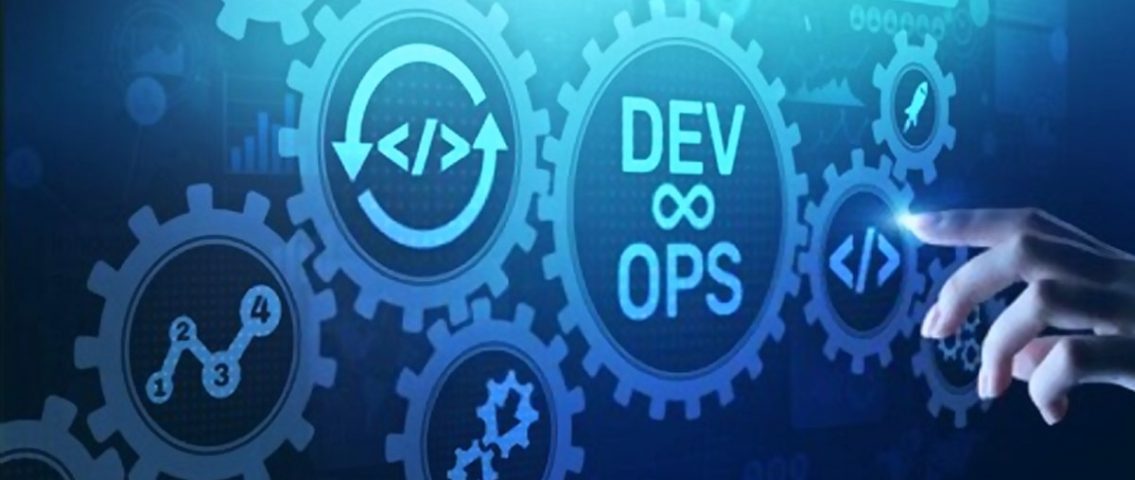Your 2022 Continuous DevOps Monitoring Solution Needs Pinch Of Artificial Intelligence

Audio : Listen to This Blog.
DevOps helped technologists save time such drastically that the projects that were barely deployed in a year or more are now seeing the daylight in just months or even weeks. It removed communication bottlenecks, eased the change management, and helped with an end-to-end automation cycle for the SDLC. However, as has been the interesting feature of humanity, any innovation that eases our life also brings with it challenges of its own. Bending over backward, the business leaders now have much more complex customer demands and employee skillset requirements to live up to. Digital Modernization requires rapid and complex processes that move along the CI/CD pipeline with all sorts of innovative QA automation, Complex APIs, Configuration Management Platforms, and Infrastructure-as-a-Code, among other dynamic technology integrations. Such complexities are making DevOps turn on its head due to a serious lack of visibility over the workloads. It is, therefore, time for the companies to put their focus to an essential part of their digital transformation journey – the Monitoring.
Continuous Monitoring for the DevOps of Our Times
DevOps monitoring is a proactive approach that helps us detect the defects in the CI/CD pipeline and strategize to resolve them. Moreover, a good monitoring strategy can curb potential failures even before they occur. In other words, one cannot hold the essence of DevOps frameworks with their time-to-market benefits without having a good monitoring plan. With the IT landscape getting more and more unpredictable with each day, even DevOps monitoring solutions need to evolve into something more dynamic than its traditional ways. Therefore, it is time for global enterprises and ISVs to adopt Continuous Monitoring.
Ideally, Continuous Monitoring or Continuous Control Monitoring in DevOps refers to end-to-end monitoring of each phase in the DevOps pipeline. It helps DevOps teams gain insight into the CI/CD processes for their performance, compliance, security, infrastructure, among others, by offering useful metrics and frameworks. The different DevOps phases can be protected with easy threat assessments, quick incident responses, thorough root cause analysis, and continuous general feedback. In this way, Continuous Monitoring covers all three pillars of a contemporary software – Infrastructure, Application, and Network. It is capable of reducing system downtimes by rapid responses, full network transparency and proactive risk management.
There’s one more technology that the technocrats handling the DevOps of our times are keen to work on – Artificial Intelligence (AI). So it wouldn’t be a surprise if the conversations about Continuous Monitoring being fuelled by AI are already brewing up. However, such dream castles need a concrete technology-rich floor. Therefore, we will now look at the possibilities for implementing Continuous DevOps Monitoring Solutions with Artificial Intelligence holding the reins.
Artificial Intelligence for Continuous Monitoring
As discussed above Continuous Monitoring essentially promises the health and performance efficiency of the infrastructure, application, and network. There are solutions like Azure DevOps Monitoring, AWS DevOps monitoring and more that offer surface visibility dashboards, custom monitoring metrics, hybrid cloud monitoring, among other benefits. So, how do we weave in Artificial Intelligence into such tools and technologies?
It mainly comes down to collecting, analyzing, and processing the monitoring data coming in from the various customized metrics. In fact, a more liberal thought can be given even to accommodate setting up these metrics throughout the different phases of DevOps. So, here’s how Artificial Intelligence can help with Continuous Monitoring and empower the DevOps teams to navigate the complex nature of modern applications.
Proactive Monitoring
AI can enable the DevOps pipeline to quickly analyze the data coming in from monitoring tools and raise real-time notifications for any potential downtime issues or performance deviations. Such analysis might exhaust much more manual workforce than AI-based tools that can automatically identify and update about unhealthy system operations much more frequently and efficiently. Based on the data analysis, they can also help customize the metrics to look for more vulnerable performance points in the CI/CD pipeline for a more proactive response.
Resource-Oriented Monitoring
One of the biggest challenges while implementing Continuous Monitoring is the variety of infrastructure and networking resources used for the application. The uptime checks, on-premise Monitoring, component health checks are different in Hybrid cloud and Multi-cloud environments. Therefore, monitoring such IT stacks and for an end-to-end DevOps might be a bigger hassle than one can imagine. However, AI-based tools can be programmed to find unusual patterns even in such complex landscapes by tracking various system baselines. Furthermore, AI can also quickly pin-point the specific defective cog in the wheel that might be holding the machinery down.
Technology Intelligence
The built-in automation and proactiveness of Artificial Intelligence enables it to relax the workforce and the system admins by identifying and troubleshooting the complicated systems. Whether it is a Kubernetes cluster, or a malfunctioning API, AI can support the monitoring administrators to have an overall visibility and make informed decisions about the DevOps apparatus. Such technology intelligence would otherwise require a very unique skillset that might be too easy to hire or acquire. Therefore, enterprises and ISVs can turn to AI for empowering their DevOps monitoring solutions and teams with the required support.
Conclusion
DevOps is entering the phase of specializations. AIOps, DevSecOps, InfraOps and more are emerging to help the industries with their specific and customized DevOps automation needs. Therefore, it is necessary that the DevOps teams have the essential monitoring resources to ensure minimal to no failures. Continuous Monitoring aided by Artificial Intelligence can provide the robust mechanism that would help the technology experts mitigate the challenges of navigating the complex digital landscape thus, helping the global industries with their digital transformation ambitions.
